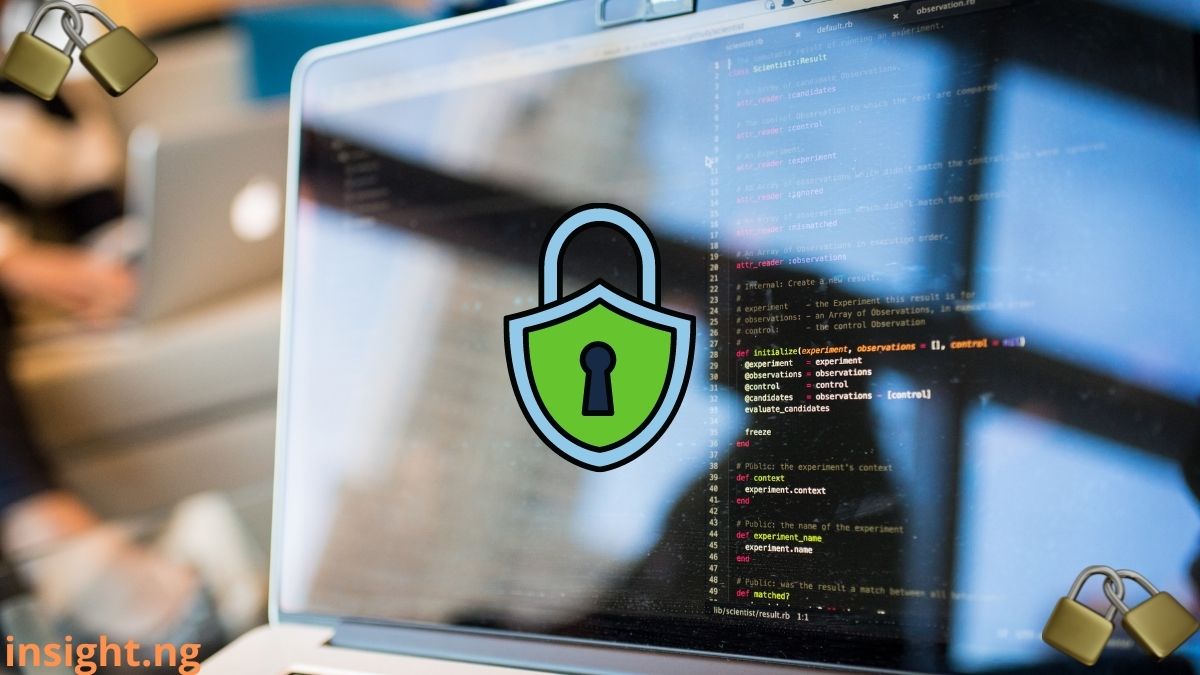Technology has become an integral part of everyday life. Mobile telephones, the Internet, and e-mail are becoming essential for communication in Nigerian society. These information technologies are used to improve the quality of our life. Everyone knows words like “hacker” and “virus”, mostly in the context of loss of information, malicious attack, and breached security.
The emergence of the World Wide Web, smartphones, and computers has transformed the world and enabled individuals to engage in crimes in numerous ways. This has become a serious issue. Now, big corporations and major websites in Nigeria and abroad hire professionals to manage their sites and improve cyber security. This article will shed more light on how an average Nigerian can avoid cyber-attacks with or without professionals.
Table of Contents
Definition of Cyber Security
Cyber security is the protection of computer systems and networks from malicious attacks or threats. Today’s world makes everyone more susceptible to cyber-attacks. Cyber security is related to protecting your internet and network-based digital equipment and information from unauthorized access and alteration. It’s concerned with making the tech environment safe. Technologies and processes which help improve cyber security exist mainly to protect computer hardware and software, networks and data from unauthorized access, and vulnerabilities from the Internet by cybercriminals and hackers.
Threats in Cyber Security in Personal and Business Accounts
-
Password attacks
A password attack refers to the various unauthorized methods a hacker tries to authenticate into password-protected accounts. Cybercriminals perform password attacks to gain access to systems. These attacks happen through the use of software that speeds up cracking or guessing passwords. Passwords play an important role in various computing applications like ATMs, internet services, windows login, and social media accounts.
The major aim of using passwords is to restrict unauthorized users from accessing the system. Passwords are necessary but still, they are not enough to provide security to the users because of many flaws in the conventional password systems. Many Nigerians will be familiar with this, especially from common WhatsApp and Facebook hacks.
-
Phishing
Phishing is a type of social engineering attack for stealing user credential information, including login details and credit card numbers. It occurs when the attacker uses fake communication, such as an email to send fraudulent messages. The goal is to trick the receiver into opening it and carrying out the instructions inside, such as providing a credit card number.
Attackers can also install malware into the victim’s device through a phishing email. Opening the mail makes way for the attacker to perform malicious behaviour from the user’s device like stealing login credentials or financial information.
-
Man-in-the-middle attack (MITM)
A man-in-the-middle (MITM) is a cyberattack that occurs when unapproved outsider positions themselves in a two-party conversation or transaction to either eavesdrop or impersonate one of the parties.
The attacker secretly relays and possibly alters the communications between the victims who believe they are directly communicating with each other over a private connection, when in fact the entire conversation is controlled by the attacker.
The attacker must be able to intercept all relevant messages passing between the two victims and inject new ones. After interrupting the traffic, they can filter and steal data. MITM attacks often occur when a visitor uses an unsecured public Wi-Fi network. Attackers insert themselves between the visitor and the network and then use malware to install software and use data maliciously.
-
Malware
This is software that specifically causes disruption, damage, or gains unauthorized access to information or systems. A malware attack is a common cyberattack where malicious software (virus) executes unauthorized actions on the victim’s system.
Malicious software typically infects a machine by tricking users into clicking and/or installing a program that they shouldn’t from the Internet. When a virus runs, it can self-replicate itself by modifying other programs and inserting its malicious code. It is the only type of malware that can “infect” other files and is one of the most difficult types of malware to remove.
Read also: How to transition into tech as a Nigerian
Ways to Improve Cyber Security as a Nigerian
-
Establish a strong password
People often choose easy-to-remember passwords (weak passwords) which are easy to hack. You’re most likely always tempted to use your name and move on. Don’t do this. Instead, use a complex password that is secure to avoid breach of security or privacy policy which improves cyber security. This can protect against service or impersonation attacks.
Reusing a password for multiple or all accounts can also be dangerous. Yes, it’s good so that you can easily remember, but if that information is sensitive, don’t repeat passwords. Provide a different strong password for each account or application you use, it’ll benefit your security.
-
Keep your software up-to-date
Hackers gain access to your network when they become aware of vulnerabilities in certain software. They can exploit these weaknesses to harm your computer system and steal personal data or credentials. A software vulnerability is a security hole or weakness found in a software program or operating system.
You’re a creative that’s always on your laptop, and yet, you forget to update your system. It’s dangerous. If your phone has an update feature too, apply the same routine checkup to ensure safety.
To keep your computer systems healthy and secure, you need to update the software regularly. Software updates often include patching outdated software or applications. They cover the security holes to keep hackers out. This helps remove critical vulnerabilities that hackers use to access your devices.
Read also: Social media platforms for digital marketing
-
Use two-factor or multi-factor authentication
Two-factor authentication is an additional layer of security that ensures that people trying to gain access to an online account are who they say they are. This helps improve cyber security, even if someone knows your password they cannot hack into the account. Instead, they will need to provide another piece of information, the authentication code. As long as you don’t share it with them, your account will be safe from such an intrusion.
-
Use anti-virus protection
Any need to emphasize this? The use of anti-virus protection provides full-proof protection against hackers and improves cyber security.
Antivirus Software is a program whose purpose is protection from malicious software, phishing attacks and other cyber threats. It detects the virus and then works on removing it from the computer system.
Antivirus performs a prophylactic function. This means it does not only eliminate a virus but also detects and prevents any potential virus from infecting your computer in the future.
-
Back up your data regularly
Backing up your data regularly is an overlooked step that improves cyber security. There should be additional data backups if the original backups result in data corruption or a cyber attack.
Backup is crucial for data protection. It saves important files from data corruption, system crash, malware infection, or accidental file deletion. In the event of a disaster, it could be a cyberattack, the only way to restore your data is to erase your systems and restore with a recently performed backup to avoid loss of data and financial loss.
-
Control access to your systems
Having control over who can access your network is a really important way to improve cyber security. One of the attacks that you can receive on your systems can be physical, it’s essential to put some selective restrictions on your computers.
Somebody, an intruder or a friend, can plug in a USB key containing infected files into your computer and infect your entire network. To control access to your system, you must maintain the physical security of your computing environment. Also, prevent unauthorized logins to a system or the network.
If you love to continue to receiving related technology articles, subscribe to our newsletter for up to date contents.
Conclusion
It is staggering to contemplate how technology has changed and taken an integral role in our lives over the last several decades. Everyone depends directly or indirectly on the system of information networks. As more business activities go through automation and an increasing number of computers store sensitive information, the need to improve cyber security for every Nigerian is more apparent.
How strong are your passwords? Now is a good time for a thorough assessment.
We have a platform where we discuss internet related topics, you can benefit a lot from the discussions. Join our Whatsapp Community to gain more knowledge about this topic.
About Author
- Ahuzi Vincentia is a Cryptocurrency content creator and ardent writer. She is passionate about research and self-growth.
Latest entries
 TechnologyAugust 23, 2022What is a Crypto Wallet, and DO You Need One?
TechnologyAugust 23, 2022What is a Crypto Wallet, and DO You Need One? TechnologyJuly 26, 2022Top 10 Tech Blogs in Nigeria
TechnologyJuly 26, 2022Top 10 Tech Blogs in Nigeria TechnologyJuly 6, 202210 Ways to Avoid Crypto Scams
TechnologyJuly 6, 202210 Ways to Avoid Crypto Scams TechnologyJune 13, 2022Is Tech Industry the Future for Nigerian Youths
TechnologyJune 13, 2022Is Tech Industry the Future for Nigerian Youths

